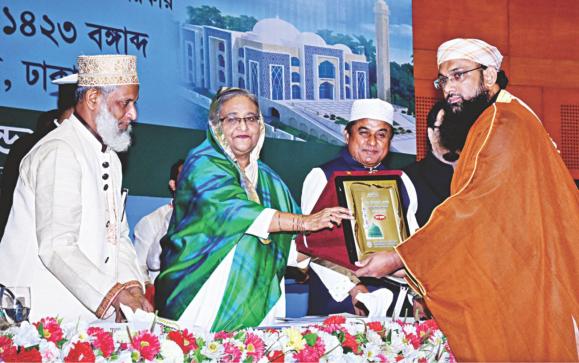Bangladesh’s Risky Gambit

Secular Bangladeshis have expressed concern about a recent government decision to incorporate certain changes to textbooks that appear to Islamisize the public school curriculum. Noting the government’s nominally secular ideology, observers have warned that “a dark political calculation” may be behind the move. At issue is whether the government of Bangladesh, in its attempts to curb militancy, is trying to de-fang extremist groups by making certain concessions that make it harder to frame the government as somehow “anti-Islam.” A new report adds more evidence that the government of Bangladesh may be pursuing a risky strategy of defusing Islamist extremism by giving Islamists more space to shape the society.
At the recent National Imam Conference in Dhaka, Prime Minister Sheikh Hasina reiterated calls on Muslim scholars to help guide people away from militancy and terrorism – an important message. However, she then went on to assure the clerics that her government is working to spread Islam in Bangladesh, including by increasing the number of mosques and Islamic cultural centers funded by Saudi Arabia.
Bangladesh is already over 86% Muslim, with the number of non-Muslims shrinking as Hindus are leaving out of concern for their safety. It is unclear what exactly the government’s motivations are, but combating militancy by empowering Islamist groups and entering the business of proselytization risks making the country’s problems with religious extremism worse, not better.